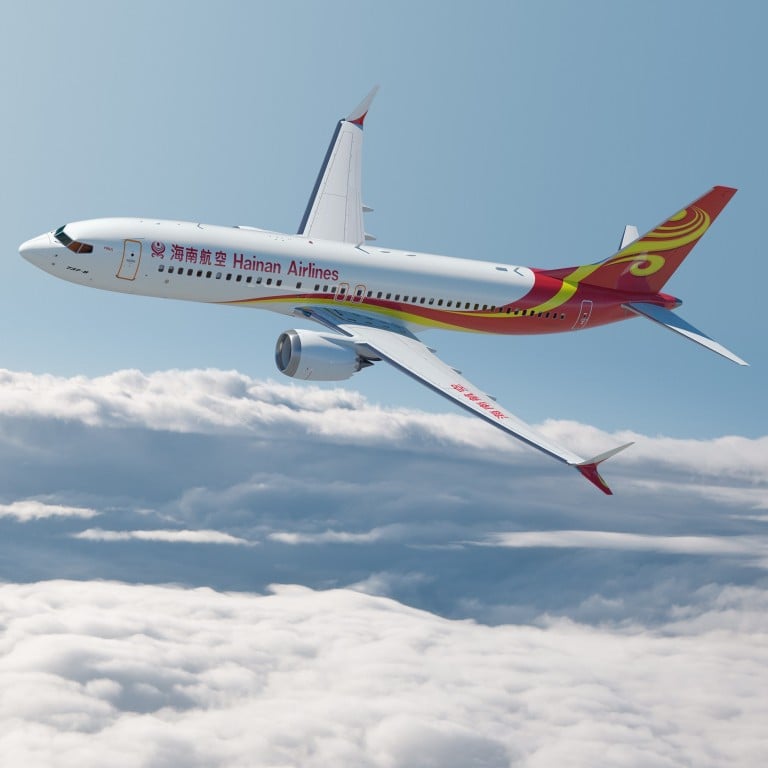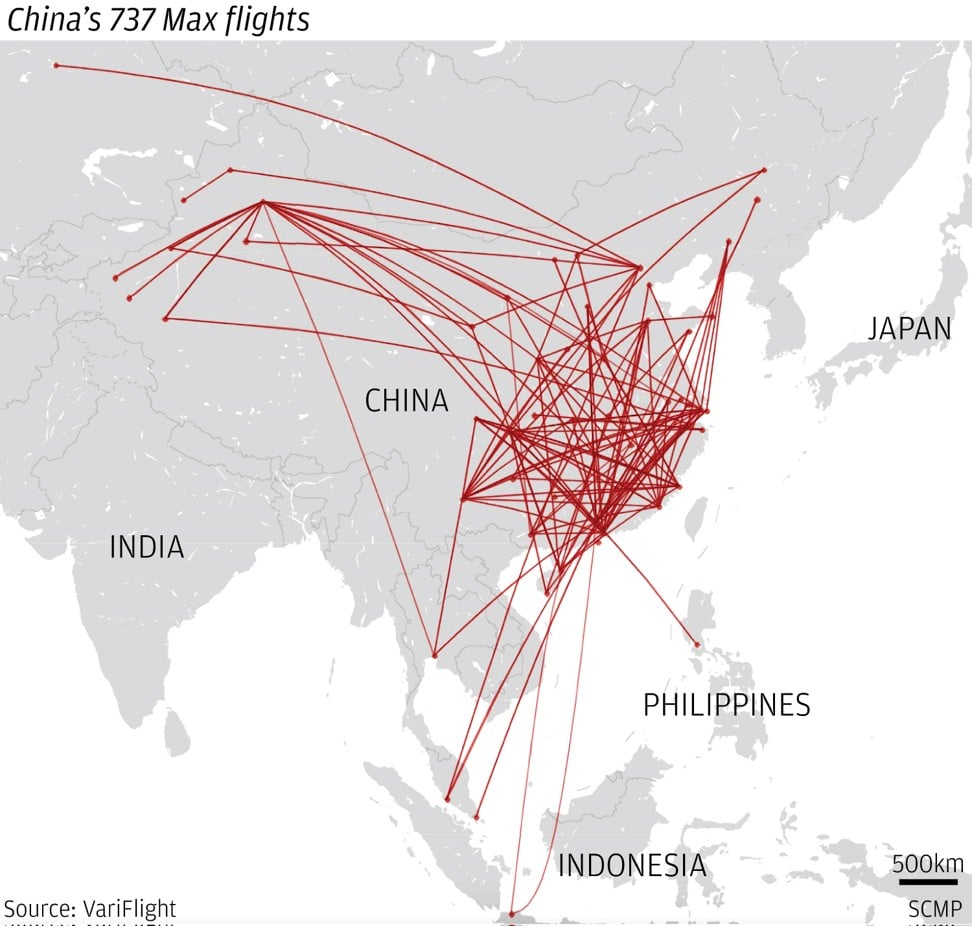
Aviation regulators of China, elsewhere ordered Boeing’s 737 MAX 8 to stop flying after second crash of the model in five months
- Civil aviation regulators of China, Ethiopia, Indonesia have ordered domestic carriers to stop flying the Boeing 737 MAX 8 aircraft
- More than a dozen Chinese carriers operate the model, with 246 domestic routes and 355 domestic flights scheduled on Monday
The design of the 737 model’s fourth-generation aircraft had “changed somewhat” since it entered service in 2017, which could “bring risks and uncertainty” to airlines that fly it, the CAAC’s deputy administrator Li Jian said, according to .

China’s grounding of Boeing’s workhorse aircraft comes at a crucial time for US-China relations while negotiators of the two countries are dashing to put the final touches to a settlement that would unwind a year-long trade war involving tit-for-tat tariffs on each other’s exports.
Li, a delegate to the Chinese People’s Political Consultative Conference (CPPCC), as the legislature’s advisory body is called, said the CAAC has written to Boeing to demand “clear answers,” and assigned personnel to keep pace with investigations into this model.
The grounding of the 737 MAX 8 affects more than a dozen Chinese carriers, which have already taken delivery of close to 100 of the model. As many as 246 Chinese domestic routes and 355 domestic flights were scheduled on Monday for the jet model, excluding international services, according to Chinese flight data provider VariFlight. As many as 29 flights have already been cancelled, while 259 fights were replaced by other aircraft.
China Southern Airlines, Air China, China Eastern Airlines, Hainan Airlines are among carriers that fly the aircraft, which can carry between 138 to 230 passengers depending on their configurations. The aircraft is listed at US$121.6 million before the discounts that are typical of bulk orders.
Boeing acknowledged airlines’ concernsarising from the latest crash, but had no guidance to offer in regards to the aircraft. The US aircraft maker said it was up to airlines to make decisions on whether to ground their own 737 MAX 8 planes.
“We have engaged our customers and regulators on concerns they may have – and would refer you to them to discuss their operations and decisions,” a Boeing spokeswoman said.
“Safety is our number one priority and we are taking every measure to fully understand all aspects of this accident, working closely with the investigating team and all regulatory authorities involved.
“The investigation is in its early stages, but at this point, based on the information available, we do not have any basis to issue new guidance to operators.”
Hong Kong’s four airlines - Cathay Pacific Airways, Cathay Dragon, Hong Kong Airlines and HKExpress - do not operate the 737 MAX 8, and none has any of the model on order.
China Southern, which operates the nation’s largest aircraft fleet, has 23 of the 737 MAX 8 planes in its fleet, while its sibling carrier Xiamen Airlines has 10.
HNA Group, the debt-ridden conglomerate, operates 16 of the 737 MAX 8 planes in three airlines under its wings: 11 at Hainan Airlines, three under Xiangpeng Airlines and two at Fuzhou Airlines. All have been grounded, with other aircraft models being reassigned to serve customers and prevent risk, according to a statement.



